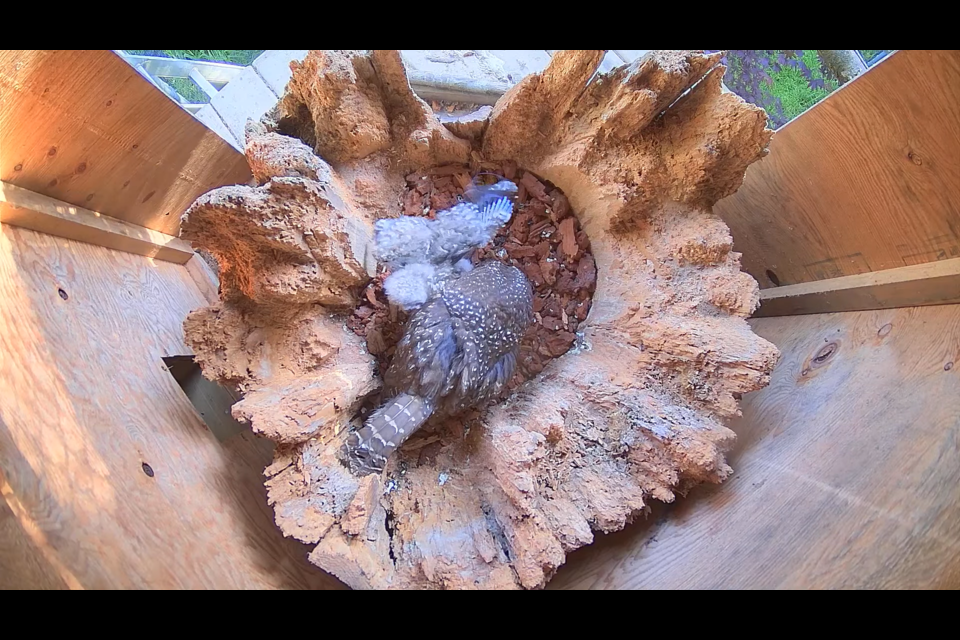There's some good news for one of Canada's most endangered species.
Northern spotted owls Jay and Bella are fostering a new chick this year. Named D-22, the chick was born earlier this year and is in the care of the two adult birds residing a the Northern Spotted Owl Breeding Program (NSOBP) in Langley.
In an effort to raise awareness about the rare owl species, the program has set up a webcam so people can watch D-22 grow up.
"She is out and about exploring the nest quite a bit," the organization says in a press release. "We expect her to fledge in the next ten days or so."
The breeding program is the only one in the world for northern spotted owls.
“This is looking to be an exciting year for everyone involved with the breeding program and we’ve been anxiously awaiting the live stream launch so that we could share our news with the world!” says coordinator Jasmine McCulligh.
The chick was born in April and hand-raised for a couple of weeks before Jay and Bella took over.
"Chick D is a female and she is the first that Jay and Bella have raised together," says the organization in a press release. "Their chicks last year were fostered to more experienced parents, but now Bella is taking on the role of foster mom and proving to be a natural mother!"
Northern spotted owls are a rare bird to see; they're one of three subspecies of spotted owl and in Canada can only be found in southwestern B.C. Spotted owls in general are considered Near Threatened by the International Union for Conservation of Nature, but subspecies aren't tracked.
In Canada the NSOBP estimates there are currently only 30; most of those are at the NSOBP facility.
"As this is the first and only breeding program for this species in the world, the team has had to overcome challenges to better understand the behaviours and husbandry techniques required to successfully breed this species," notes the organization's website.
Their goal is to release 10 to 20 owls into the wild each year to rehabilitate their population.
Each day the live stream starts anew, so to see the most up-to-date images, visit the .




